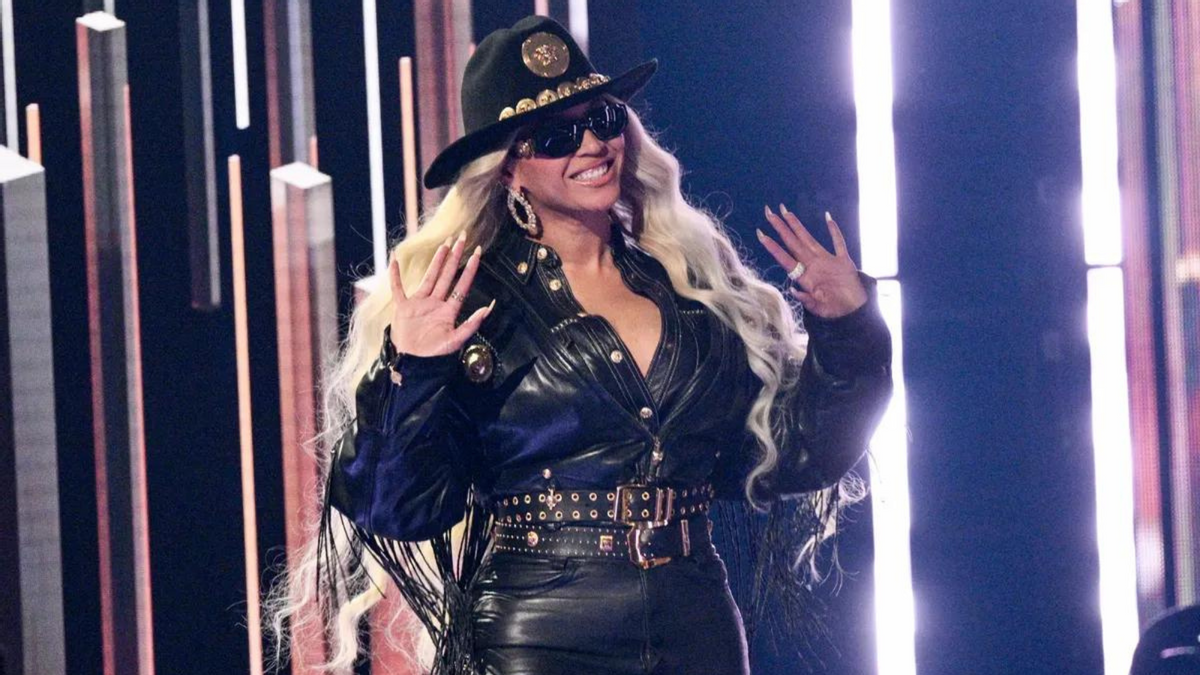Beyoncé Banned from Grand Ole Opry, Sparking Debate Over Country Music Boundaries
Nashville’s legendary Grand Ole Opry has been the Carnegie Hall of country music for 99 years.

Image courtesy of Getty Images
In April 2024, the world was stunned when global music superstar Beyoncé was banned for life from performing at the Grand Ole Opry, the revered country music venue in Nashville, Tennessee. The ban, which was reported by Esspots.com on April 11, 2024, has ignited a fierce debate about the boundaries of country music and the inclusion of diverse musical styles within the genre.
The Controversial Decision
The article on Esspots.com, titled “Breaking: The Grand Ole Opry Bans Beyoncé For Life, ‘Go Play Dress-Up, You’re Not Country,'” revealed that the Grand Ole Opry’s decision was rooted in the belief that Beyoncé did not represent country music. The move has been both praised and criticized, highlighting deep divisions within the country music community about what constitutes “true” country music.
Background and Context
Beyoncé’s foray into country music began with her critically acclaimed song “Daddy Lessons” from her 2016 album Lemonade. The track received praise for its authentic country sound and lyrical depth, even earning a performance slot at the 50th Annual Country Music Association Awards. More recently, her album Cowboy Carter further explored country themes and collaborations with prominent country artists, solidifying her interest in and respect for the genre.
Reactions from the Music Community
The Grand Ole Opry’s ban has drawn a wide range of reactions. Some traditional country music purists support the decision, arguing that Beyoncé’s music, while excellent, does not fit the genre’s traditional mold. They believe that maintaining the genre’s integrity is essential and that the Opry’s decision reflects a commitment to its roots.
On the other hand, many artists and fans have expressed outrage, viewing the ban as exclusionary and outdated. They argue that music genres should evolve and embrace diversity, noting that Beyoncé’s contributions have brought new audiences to country music. Prominent artists, including those from within the country music community, have voiced their support for Beyoncé, emphasizing the need for the genre to be more inclusive.
Broader Implications
This incident raises important questions about the future of country music. As genres increasingly blend and artists experiment with different sounds, the rigid definitions of what constitutes country music are being challenged. The Grand Ole Opry’s decision to ban Beyoncé underscores a tension between preserving tradition and embracing innovation.
The Path Forward
Beyoncé’s response to the ban has been gracious and measured. While disappointed, she has expressed her continued love for country music and her respect for its traditions. Her team has indicated that she will continue to create music that reflects her diverse influences, including country.
Meanwhile, the Grand Ole Opry faces a critical moment. The venue, which has long been a symbol of country music’s heritage, must navigate the evolving landscape of the genre. Its decision regarding Beyoncé may set a precedent for how it handles other artists who push the boundaries of what is considered country.
Conclusion
The Grand Ole Opry’s lifetime ban on Beyoncé has sparked a significant debate about the definition and future of country music. As the genre evolves, the music community must grapple with balancing tradition and innovation. Beyoncé’s exclusion from the Grand Ole Opry may have immediate repercussions, but it also highlights the broader challenge of ensuring that country music remains vibrant, relevant, and inclusive. The coming years will likely see continued discussions and potentially transformative changes in how the genre defines itself and welcomes diverse voices.
News
Zack Snyder Shows Off New Henry Cavill Image From ‘Man of Steel’ – S
Zack making sure fans don’t forget about his DCEU. On Friday, Zack Snyder again took to the Vero app to show off his DCEU, this time with Henry Cavill as Clark Kent from Man of Steel. “This came up on my…
Goodbye DC and Superman, Henry Cavill reveals his favorite role if he joins MCU – S
Henry Cavill has expressed his favorite role if he has the opportunity to collaborate with Marvel Studios. Henry Cavill has officially said goodbye to the role of Superman after the DCEU ended at the end of 2023 to open the…
Breaking: Jack Black Vows To Leave The US Permanently, “I Just Can’t Take It Anymore” – S
In a stunning turn of events, beloved actor and musician Jack Black has announced his departure from the United States, citing a lack of respect as the primary reason for his decision. The star, known for his infectious energy and…
Pierce Brosnan Leaves Woke Hollywood To Join Mel Gibson’s New Non-Woke Studio, “Felt Like The Right Thing To Do” – S
In a surprising turn of events, Pierce Brosnan has announced that he will be joining forces with Mel Gibson in a bold new venture. Gibson’s latest project, a non-woke production studio, aims to create content that diverges from the mainstream…
Henry Cavill reveals his ‘Warhammer 40k’ project is ‘progressing very well’ – S
Henry Cavill has provided a brief but promising update on his upcoming Warhammer 40,000 project. Since Henry Cavill’s controversial departure from the DCU, he has been attached to several highly ambitious projects. One of them is the live-action adaptation of the beloved miniature…
‘Warhammer 40k’ Trolls Are Projecting Their Bigotry on Henry Cavill – S
One of Henry Cavill’s biggest upcoming projects is an undisclosed role in Amazon’s Warhammer 40k TV show adaptation. However, rumor has it that the actor may have left the production. Shortly after announcing his departure from The Witcher and the DCU, Cavill revealed that…
End of content
No more pages to load











